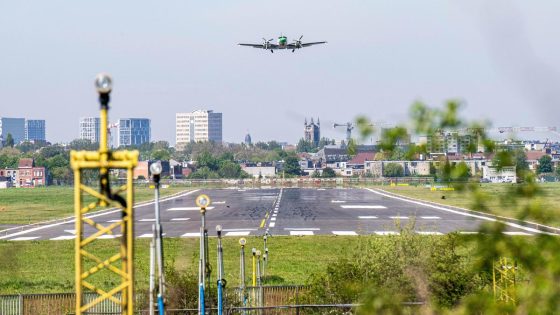Antwerp Airport’s financial struggles have deepened, with a net loss of €658,000 reported last year despite steady revenue and activated costs. This marks a significant decline from the €81,000 loss in 2023, as revealed in the latest financial statements dated 2025-08-07 04:24:00. The cumulative deficit now totals €2.3 million, raising concerns about the airport’s operational health.
- Antwerp Airport reports increased net loss in 2023
- Operational efficiency declines despite stable revenue
- Airport remains financially dependent on public subsidies
- Negative equity signals solvency concerns and risks
- Uncertain environmental permit extension adds operational risk
- Auditor possibly refuses to approve financial statements
Professor Wouter Dewulf, aviation economist at UAntwerpen, confirms the deteriorating financial situation, pointing to declining operational efficiency and external shocks. How sustainable is Antwerp Airport’s reliance on public subsidies and its major client, TUI? These questions loom large as the airport’s liquidity pressures intensify.
With this in mind, let’s explore the key financial challenges facing Antwerp Airport and what they mean for the region’s connectivity and economy.
What does this mean for Antwerp Airport’s future? The airport’s finances reveal several critical issues:
- Operating losses deepened, with EBIT falling nearly €900,000 in 2024.
- Negative equity of €55,000 signals solvency concerns for the first time.
- Debt stands at €9.9 million, mostly short-term, increasing liquidity pressure.
- Dependence on €5.4 million in subsidies and a €976,000 loan from parent company Egis remains vital.
Looking ahead, can Antwerp Airport reduce costs or diversify revenue to break its dependency cycle? A capital injection appears necessary to secure its survival. Stakeholders must act swiftly to safeguard this key transport hub and ensure it continues serving Belgium’s needs effectively.
































